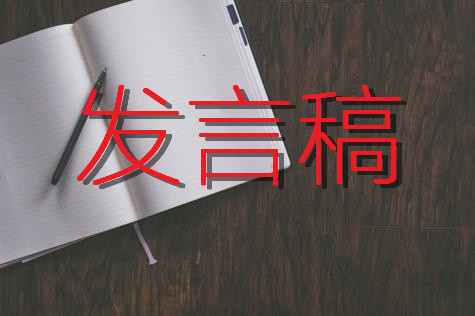教学设计 小学数学优秀教学设计
时间:2019-05-03 03:20:41 来源:雅意学习网 本文已影响 人 
【中图分类号】G623.31 【文献标识码】A 【文章编号】2095-3089(2012)04-0087-02 一、教学内容 PEP 五年级下册 Unit 4 A Let?蒺s learn, Let?蒺s play
Words: drawing pictures, doing the dishes, cooking dinner, reading a book, answering the phone
Sentences: What are you doing? I am doing the dishes.
二、教学目标
知识目标:能够听、说、认读、正确书写词组drawing pictures, doing the dishes, cooking dinner, reading a book, answering the phone。
能力目标:能用所学词汇、句型交流谈论“你正在干什么”这一话题。
学习策略目标:初步掌握运用动词原形变现在分词的技巧及?鄄ing的发音技巧,通过小组调查、交流个人信息的学习方式,培养学生的自主学习能力和合作精神。
情感态度目标:学生能够认识到生活是丰富多彩的,能够热爱生活。
三、教学重难点
1.听、说、认读drawing pictures, doing the dishes, cooking dinner, reading a book, answering the phone。
2.动词短语?鄄ing形式的读音及拼写,及用所学词汇、句型进行交流。
四、教学过程:
Step 1: Warm?鄄up/Review.
1. Let?蒺s do.(教师出示课件)
Fly kites, fly kites, I can fly kites.
Draw pictures, draw pictures, I can draw pictures.
Read a book, read a book, I can read a book.
Cook the meals, cook the meals, I can cook the meals.
Do the dishes, do the dishes, I can do the dishes.
教师通过Let?蒺s do培养学生的听力及反应能力,使学生尽快进入学习状态,同时复习学生学过的动词词组,为进入新课学习做好铺垫。
2. Free talk.
T: What can you do else?
S1: I can…
S2: I can…
T: You can do many things. Look, what can John do?(出示课件)
S1: He can…
S2: He can…
师生之间谈论“能做的事情”,复习旧知并自然衔接下一环节。
Step 2: Presentation
1.呈现词组 reading a book
(1)T:John can watch TV and read a book. But what is he doing now? Let me ask him: John, John, what are you doing? 同时板书What are you doing?
全班齐问:John, John, what are you doing?
课件出示图片并回答:I?蒺m reading a book.
(2)教师拿起自己的书读:Reading a book, I am reading a book, too.同时板书:I?蒺m reading a book.
T: [iη] [iη] reading, reading a book
Ss read and write the phrase following the T.
教师板书reading a book时注意将单词按音节分解,让学生看到并领会老师是如何通过拼读规律来记忆、书写单词的。
(3)T: Who likes reading? Please read your book.
喜欢读书的同学读自己的书,教师问其中一个读书的学生What are you doing?再由这个学生问其他同学。
T: What are you doing?
S1: I am reading a book. What are you doing?
(4)老师请最后一名学生问老师,同时拿出自己的手机表演打电话。
T:Can you ask me?
S: What are you doing?
2.呈现词组answering the phone(接上一环节)
(1)T:I?蒺m answering the phone.同时板书answering the phone
Ss read and write the phrase following the T.
(2)Ss read it and do the action one by one.学生做打电话动作说词组。
(3)T: Boys and girls, Let?蒺s take out our phones and call our best friends.全班都做打电话动作。
T: What are you doing?
S1: I?蒺m answering the phone.
3.呈现doing the dishes (1)出示课件(接上一环节)
T: Look, John is answering the phone, too. Whom is he calling?
Ss: Zhang Peng.
T: What is he doing?
S1:He?蒺s…
T: Look at his hand. He?蒺s doing the dishes. 课件出示图片,
同时板书doing the dishes,学生跟老师一起写。
(2)Ss do and read together.
(3)Do in pairs, and ask and answer: What are you doing? I?蒺m doing the dishes.
(4)T:You?蒺re doing the dishes. What am I doing now? Please ask me. Ss: What are you doing?
教师先后做读书、接电话和洗碗的动作,同时拍手做chant。
学生看课件一起做chant。歌谣朗朗上口,使词组与句子有机结合,富有情趣,便于记忆。
4.呈现词组drawing pictures, cooking dinner
(1)T:We?蒺re chanting happily. Chenjie and her mother are happy, too. Look, What are they doing?
Ss: She?蒺s drawing pictures. She?蒺s cooking.
鼓励学生依据前三个词组的学习,试着说出drawing, cooking。
(2)Yes, Chenjie is drawing pictures. Her mother is cooking dinner.同时板书drawing pictures,cooking dinner。学生跟老师一起分音节书写。
5.Let?蒺s chant.
T: We?蒺re drawing, we?蒺re reading. I think life is wonderful. Please love our wonderful life.
用chant巩固新知,同时由chant创设的语义、语境揭示主题:Life is wonderful. Please love our wonderful life.
6.听音,模仿。
(1)T:Listen, point and read.
(2)T: Please read it by yourselves. At least 3 times.
(3)Ss try to read books together like the tape.
(4)T: Who wants to read it? 找两个学生读书,鼓励学生模仿发音,同时教师可以评价学生掌握情况。
(5)T:Do you have any questions about the new phrases? Please find out the same point.
学生问问题,找规律,最后由教师总结现在进行时中动词原形变现在分词的技巧及?鄄ing的发音技巧。
对文本的学习,学生以听音模仿及自主朗读为主,以此培养学生自主学习、自我评价的能力。教师进一步培养学生的词汇学习策略。
Step 3: Practice
Let?蒺s play.
(1)教师与学生打电话示范。
T: Hello. What are you doing?
S: I?蒺m… What are you doing?
T: I?蒺m…
(2)教师依据上面的内容填写课本46页表格。
(3)学生四人一组完成表格。
(4)学生汇报结果。
依据文本给学生提供的语言支持,利用打电话活动创设情境,为学生顺利进行下一步的语言拓展,做好铺垫,以达到学用结合的目的。
Step 4: Homework
1.Listen to the tape and try to imitate.
2.Call 3 friends by using the patterns: What are you doing?
Write them down. Then give a report.
推荐访问:教学设计









